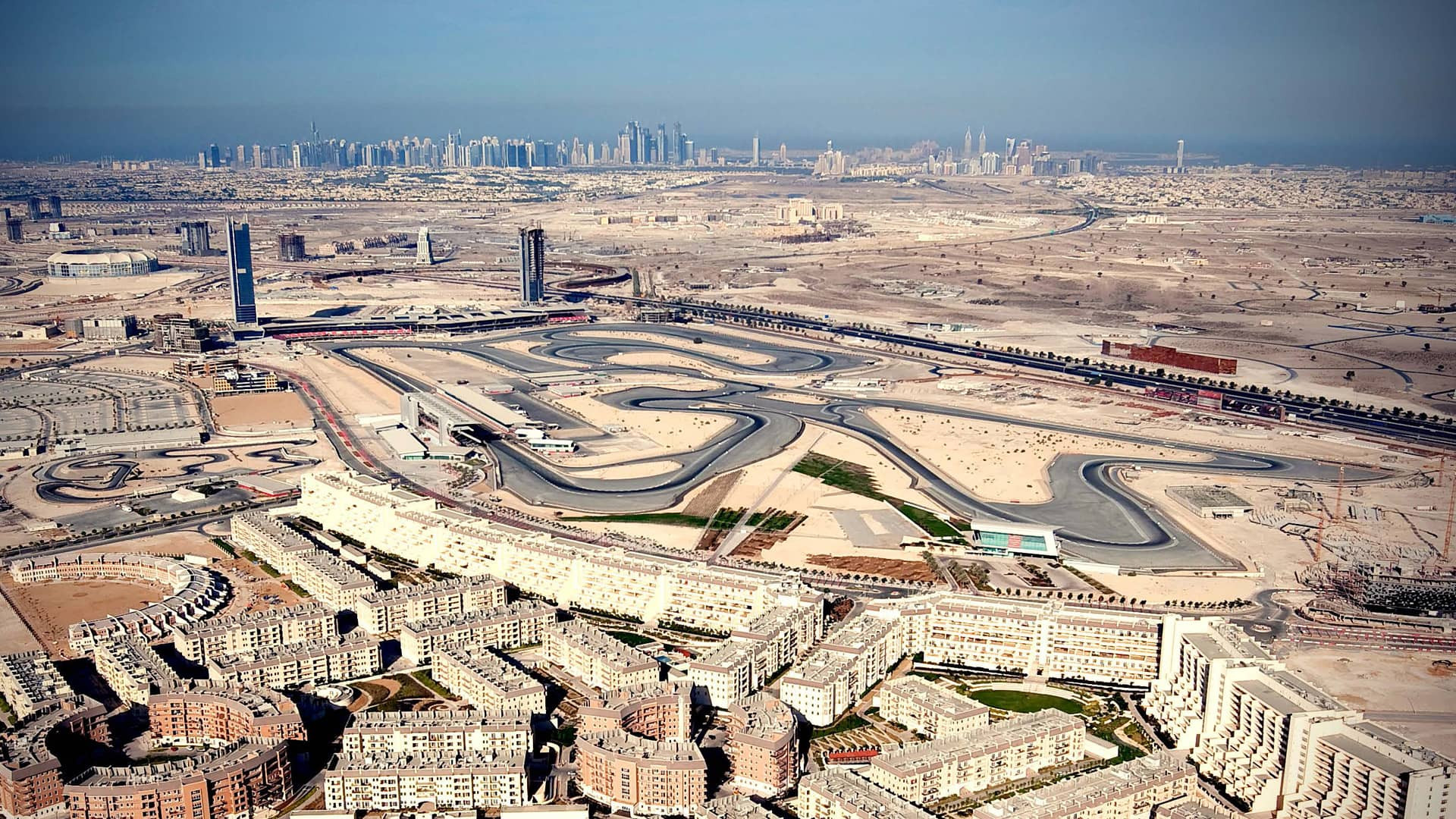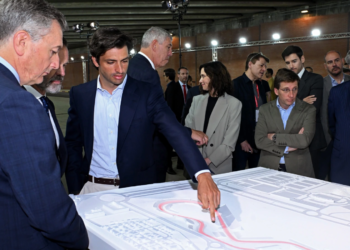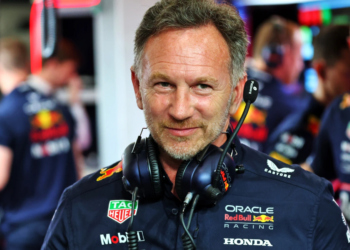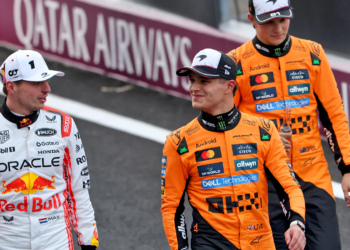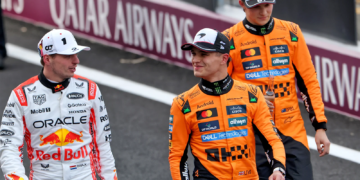Formula 1 has never been just about racing. It’s a spectacular sport with a mix of speed and extravaganza.
And nowhere is this more evident than in Las Vegas, where the grand prix has been reimagined as an event of grand ambition. The cars race down the Strip, surrounded by the neon glow of world-famous casinos, and the event has drawn unprecedented crowds.
The world of Formula 1 is constantly expanding, and Liberty Media (the commercial rights owners) are constantly looking for new ways to attract more fans and increase revenue.
The Middle East is one of the markets F1 has been targeting, and there, one of the bigger cities is Dubai. Will we see a Formula 1 race happen in Dubai in the near future?
The success of the new F1 track in Las Vegas
Formula 1’s arrival on the new track around the Las Vegas Strip, in 2023, was never meant to be subtle. The sport, which as we all know is built on precision and spectacle, has found a natural stage among the flashing lights and towering resorts.
The inaugural race changed a stretch of neon-drenched asphalt into a high-speed theatre. The grandstands were filled with fans drawn as much by the casinos and nightlife as by the roar of hybrid engines.
The circuit, through the centre of the city, delivered the typical kind of sensory overload that always seems to define Las Vegas. Many hotels that overlooked the track became private viewing platforms and the luxury suites hosted a global elite accustomed to the finer excesses of motorsport.
At the same time, the high-stakes gambling floors buzzed with anticipation. It was not only the thrill of potential casino winnings that made adrenaline rush. This was an event designed as much for the spectacle lover as for the F1 purist.
The event was a great success, and the follow-up in 2024 actually exceeded expectations!
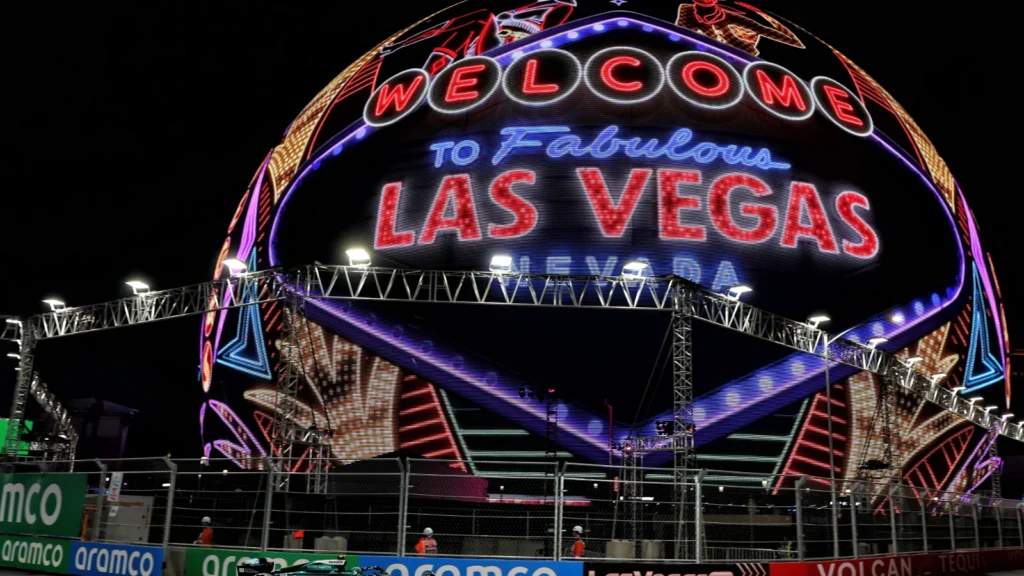
The economic impact of the Las Vegas Grand Prix
Hotels, restaurants and entertainment venues saw a surge in revenue as Formula 1 fans filled Las Vegas luxury suites and high-end dining establishments. The total economic impact surpassed 1.5 billion USD, according to ESPN.
This meant that the Formula 1 race weekend eclipsed even the figures associated with the Super Bowl, played in Allegiant Stadium, Las Vegas, in February of the same year.
Naturally, employment opportunities expanded in response to the event’s scale. According to Business Insider, the number of jobs created during the Las Vegas Grand Prix was expected to exceed 7,700, across hospitality, transportation, and event management.
Data from Applied Analysis, a research company based in Las Vegas, claims local tax revenue saw a sharp increase, with $94 million flowing into state and municipal budgets.
The data from the Vegas-based company also claims the city’s casinos experienced varied effects. Some benefited from the influx of high-net-worth visitors, while others noted a change in clientele as regular patrons avoided the heightened crowds and premium pricing that accompanied race weekend.
Dubai’s rapid development and future prospects
Dubai’s international reputation is largely built on reinventing and expanding upon existing concepts. The city is moving at a pace few can match – from its desert sands to its skyline of engineered ambition. New luxury hotels are being built, which are veritable architectural marvels, each designed to outshine the last.
Entertainment infrastructure has followed the same trajectory. Resorts, stadiums, and upscale retail complexes appeal to an audience drawn as much by spectacle as by comfort. Any investment in integrated resorts suggests preparations for something that could redefine the city’s appeal.
For example, Wynn’s development, yes the Las Vegas casino giant, in Ras Al Khaimah has already signalled the region’s appetite for high-stakes tourism. Khalid Bin Kalban, CEO of Dubai Investments PJSC, expects tourism to grow rapidly with the casino, and says the project is like bringing a “mini-Vegas” to Ras Al Khaimah.
Dubai has already established a reputation as a luxury hub. The move towards a wider range of entertainment, including casinos, is likely a question of when, not if. The number of tourists is already increasing, and with it the number of hotel nights, and global brands are vying for a place in a market where opulence is the name of the game.
New possibilities for gambling in Dubai
The conditions for commercial gambling in Dubai, and the UAE in general, have recently changed from prohibition to regulation. At the core of this transformation is the General Commercial Gaming Regulatory Authority (GCGRA), which was established in 2023 to oversee the industry with a mandate that extends from licensing to enforcement.
As a consequence, gamblers can already play at these suggested casinos in Dubai.
The GCGRA operates with a clear directive – to ensure that any gambling-related activity aligns with strict legal, ethical, and social responsibility standards. The licensing framework spans multiple sectors, from online platforms to land-based venues, sports wagering, and lotteries. Each permit is structured to enforce transparency and safeguard player welfare, reinforcing a commitment to responsible gambling.
The existence of GCGRA also means that the necessary framework already exists for the potential construction of land-based casino gambling in Dubai.
Formula 1’s expansion in the Middle East
In the Middle East, Formula 1 has grown from being an ambitious experiment into an essential part of the calendar. The Bahrain Grand Prix, which was introduced in 2004, laid the foundation for a region eager to embrace elite motorsport.
The Yas Marina Circuit in Abu Dhabi soon followed, establishing itself as the stage for season finales with its state-of-the-art facilities.
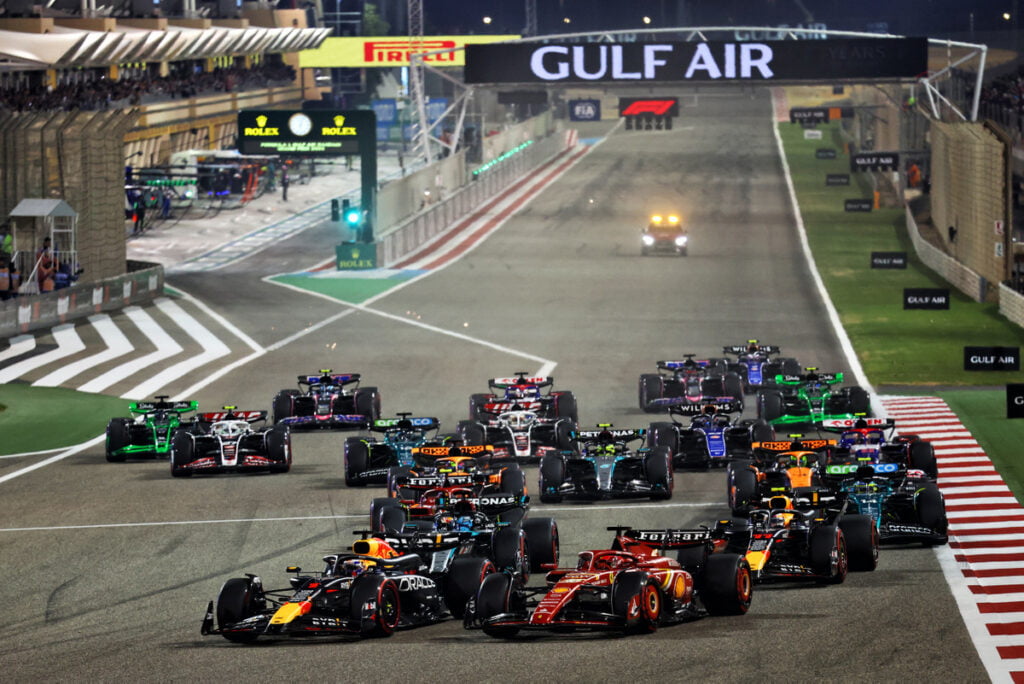
Motorsport culture has taken deep root in the region. Governments have invested heavily in racing infrastructure, recognising Formula 1 as both a driver of tourism and a symbol of progress.
Wealthy fans, corporate sponsors, and international investors have elevated the sport’s status. Middle Eastern races are no longer novelties but cornerstones of a championship shaped by an appetite for speed and luxury.
An overview of the Dubai Autodrome
Dubai Autodrome opened in 2004 as the first fully integrated motorsport facility in the UAE. The circuit was built within the sprawling MotorCity development and was designed to position Dubai as a serious player in international racing.
The 5.39-kilometre track holds an FIA Grade 1 licence, which means that it meets the highest standards for elite competition.
The circuit features six configurations, allowing multiple events to run simultaneously. Safety has been prioritised, with wide run-off areas and digital surveillance systems. Over the years, the venue has hosted a range of top-tier series, including the FIA GT Championship, GP2 Asia, and endurance racing’s Dubai 24 Hours.
But the Dubai Autodrome is used for more than just professional motorsport. It also serves as a training ground for emerging talents, with karting circuits and driver experience programmes included within the facility. Its infrastructure, strategic location, and proven ability to manage international events make it a viable contender for expansion into a new Formula 1 track.
Comparison with the Yas Marina Circuit
Yas Marina Circuit was built for spectacle. It’s positioned on Yas Island, designed to be a showpiece for Abu Dhabi’s luxury-driven vision and debuted in 2009 with the Formula 1 season finale.
The circuit’s floodlit layout, waterfront setting, and integration with a marina and five-star resorts created an event that was as much about grand-scale entertainment as about high-speed racing.
Dubai Autodrome presents a different identity. The layout, with its fast corners and elevation changes, is considered a purer driving challenge. The location, integrated within MotorCity, provides easy access but lacks the high-profile tourism infrastructure of Yas Island.
The track’s FIA Grade 1 status makes it capable of functioning as a new Formula 1 track. Yet its facilities and commercial draw would require investments to match the standards set in Abu Dhabi.

Potential benefits of a grand prix in Dubai
A Formula 1 grand prix in Dubai would strengthen the city’s reputation as a global hub for high-profile events. With the right investments, the economic impact could be significant, as the figures for the Las Vegas Grand Prix show.
Hotels, restaurants, and entertainment venues, and possibly also casinos for gambling in Dubai, would benefit from an influx of international visitors. For the city of Dubai, the job opportunities and the local tax revenue would see a major increase.
The opportunities of luxury tourism could also be compared to that in Las Vegas where it, including casino visits, is a major key to success. Formula 1 in Dubai could attract wealthy individuals and sponsors keen to connect with the elite motorsport scene.
There are challenges too
Hosting a grand prix at the Dubai Autodrome would however present logistical and strategic challenges. The existing calendar is already saturated with races in the Middle East, with Bahrain, Saudi Arabia, Qatar and Abu Dhabi firmly established. Adding another event in the region would require a certain level of justification, especially with Formula 1’s growing emphasis on expanding into new markets.
Upgrading the existing infrastructure would be essential. While the circuit already meets FIA Grade 1 standards, paddock facilities and spectator capacity would need significant investment to match the expectations of a modern Formula 1 grand prix.
Traffic management and transport logistics pose additional concerns. Unlike Yas Marina, which benefits from an island location with dedicated access, the Autodrome sits within a densely developed urban area where congestion could complicate large-scale event planning.
Financial viability is another factor. The cost of securing and maintaining a Formula 1 grand prix is substantial. According to the University of Michigan, the owners of a typical F1 track must pay Liberty Media between $15-50 million to host one single race. Any proposal would need to align with both commercial interests and the strategic visions of the championship.

